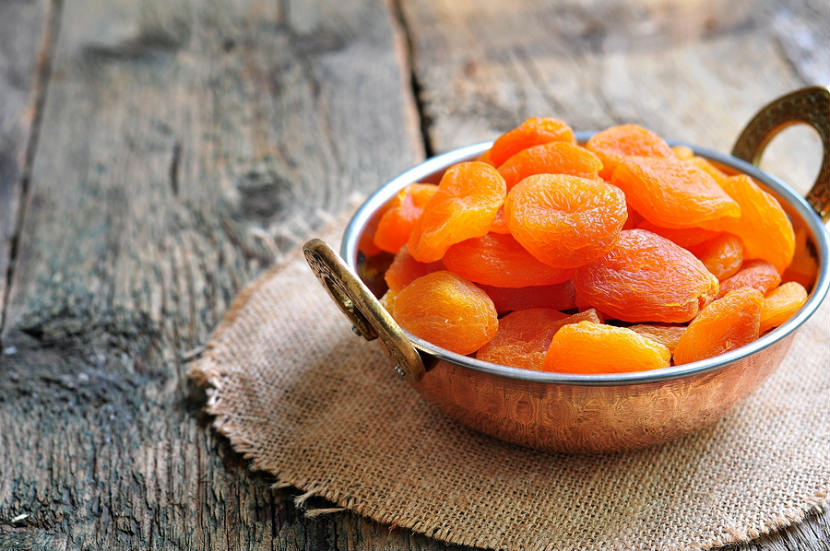
Sulphites are substances that are naturally found in some foods. They are used as an additive to maintain food colour, shelf-life and prevent the growth of fungi or bacteria. Sulphites are also used in food packaging like cellophane.
What foods and drinks have sulphites?
Foods and drinks that often contain sulphites include:
- Canned and frozen fruits and vegetables
- Fruit and vegetables juices
- Fruit fillings and syrups, jams, jellies and other preserves
- Dried fruits and vegetables, like apricots, coconut, raisins and sweet potato
- Cereal, cornmeal, cornstarch, crackers and muesli
- Dehydrated, mashed, peeled and pre-cut potatoes, including French fries
- Tomato pastes, pulps and purees
- Condiments like horseradish, ketchup, mustard, pickles and relishes
- Vinegar and wine vinegar
- Bottled lemon and lime juices and concentrates
- Alcoholic and non-alcoholic wine, beer and cider
These foods may also contain sulphites:
- Baked goods, including granola bars (especially with dried fruits)
- Deli meats, hot dogs and sausages
- Dressings, gravies, sauces and soups
- Dehydrated fish, crustaceans and shellfish
- Noodle and rice mixes
- Soy products
Other items that may contain sulphites include:
- Gelatin or pectin
- Sweeteners like dextrose, glucose solids and syrup and molasses
- Medications and pharmaceuticals
Sulphites are not allowed on fresh vegetables and fruits (except sliced potatoes and raw grapes). They are also not allowed on pre-packaged meat, poultry and fish (other than tuna and crustaceans).
Are sulphites listed in the ingredient list of packaged foods?
In Canada, sulphites must be listed on the package label. Canadian guidelines require that sulphite-containing products are clearly labelled. The ingredient list will say “contains: sulphites” if it contains this ingredient. It may also say “May contain sulphites” if there is a chance the product has come into contact with sulphites.
What are other names for sulphites?
Sulphites can have many other names, such as:
- Potassium bisulphite
- Potassium metabisulphite
- Sodium bisulphite
- Sodium dithionite
- Sodium metabisulphite
- Sodium sulphite
- Sulphur dioxide
- Sulphurous acid
- Sulphites
- Sulfites
- Sulfiting or sulphating agents
Are sulphites safe to eat?
Yes, for most people. However, some people have sulphite sensitivity and may react to sulphites with allergy-like symptoms.
What is sulphite sensitivity?
A sulphite sensitivity is when the body reacts to consuming sulphites. Sulphite sensitive people may have a similar reaction as those with a food allergy. Sulphites can trigger asthma and symptoms of an anaphylactic reaction. Many people who have asthma may also have a sulphite sensitivity. An allergist can confirm sulphite sensitivity. In this case, sulphites need to be avoided.
Do sulphites cause headaches and migraines?
It’s unclear. More research is needed to understand the link between sulphites and migraines. If you think sulphites may be the cause of your migraines, take note of what you ate and drank before your migraine started and talk to your dietitian or healthcare provider.
Should I avoid eating sulphites?
Only if you have sulphite sensitivity. You can prevent a sulphite reaction by avoiding all food and products with sulphites. Keep these helpful tips in mind:
- Look at the ingredients list and avoid foods that say “contains: sulphites.”
- Avoid foods that say “may contain” or “may contain traces” of sulphites on the label.
- If you are unsure if a product contains sulphites, contact the manufacturer. Many food packages have contact information on them.
- Don’t take chances. Avoid foods that do not have a clear ingredient list. This includes avoiding imported products, as they do not always have an accurate food label.
- Be informed. Sign up for the Canadian Food Inspection Agency’s (CFIA) free email “Food Recalls and Allergy Alerts” notification service.
- Avoid bulk foods where the ingredient lists are not clear and may have come in contact with other bulk items containing sulphites.
- When eating out, ask if sulphite-containing foods are used. Call ahead if you can.
- Ask at the grocery store if the sliced potatoes, raw grapes and pre-packaged tuna and crustaceans contain sulphites.
How can a dietitian help?
A
dietitian can work with you to personalize your diet based on your sensitivities, preferences and lifestyle. For example, a dietitian can help you identify sources of sulphites in your diet and suggest alternatives so that you are eating a balanced diet. They can also help you read and understand food labels. Most employee benefit plans cover dietitian services.
Connect with a dietitian today!
Bottom line
Sulphites are safe for most people. You can still eat a healthy balanced diet following Canada’s Food Guide if you have a sulphite sensitivity. If you aren’t sure if a product contains sulphites, don’t take any chances. Carefully read the ingredient list of food products every time to avoid a sulphite-related reaction.
You may also be interested in:
Food Allergies and Intolerances
Understanding Food Labels in Canada
Canada’s Food Guide
This article was written and reviewed by dietitians from Dietitians of Canada.
Last Update – November 19, 2021